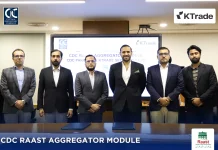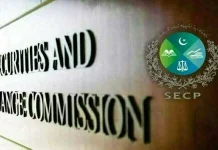Amid mounting pressure from the business community over sweeping powers granted to tax officials under Sections 37A and 37B of the Sales Tax Act, the Federal Board of Revenue (FBR) has introduced a procedural framework to regulate arrests in tax fraud cases, providing safeguards to prevent misuse.
The move follows a nationwide strike by traders on July 19 and unsuccessful talks with SAPM Haroon Akhtar. The protest stemmed from concerns over arbitrary arrests and harassment by tax officers. In response, top business leaders met with Field Marshal Asim Munir, who assured them that no undue hurdles would be placed in the way of lawful business activity.
Sales Tax Circular No. 02 outlines a structured FBR process governing inquiries, investigations, and arrests in tax fraud cases. The framework introduces multiple layers of approval and clearly defines prosecutable offences to minimise discretionary action.
According to the circular, an Inland Revenue Officer may initiate an inquiry only after obtaining written approval from the Commissioner. This approval must be grounded in concrete evidence pointing to the commission of tax fraud or another prosecutable offence.
After a traders backlash arrests now subject to multi-tier approvals; economic transaction bans introduced for ‘ineligible’ taxpayers
Once the inquiry concludes—after giving the accused an opportunity to be heard—a detailed report must be submitted to the Commissioner, who will decide whether to close the case or authorise a formal investigation.
If approved, the investigation must be completed within three months, and its findings submitted to the Special Judge for prosecution. A warrant of arrest under subsection (8) of Section 37A may be issued only after the case is reviewed and approved by a committee of three FBR members, as notified by the FBR chairman. This applies only where the alleged fraud exceeds Rs50 million.
To curb abuse, the FBR has clearly defined tax fraud to include the use or creation of false, forged, or fictitious documents — such as returns, statements, annexures, and invoices — as well as claims of input tax credit based on non-existent transactions. Other offences include issuing invoices without the actual supply of goods, destroying material evidence or mandatory records, and manipulating the tax system to generate fake inputs or fabricate entries.
The framework also addresses misuse of Section 73 of the Sales Tax Act, particularly in schemes where payments are routed back to the taxpayer via supplier accounts or affiliated entities. All cases involving tax fraud above Rs50 million fall under this enhanced enforcement regime.
Preconditions that may justify seeking arrest include the risk that the accused might tamper with evidence, abscond, or fail to cooperate despite being served three notices. Moreover, the Commissioner has been empowered to compound an offence—allowing the accused to avoid prosecution—if they pay the evaded tax along with default surcharge and penalties.
An arrest warrant from a Special Judge may be obtained in serious tax fraud cases, such as those involving fake or fabricated invoices. Even in these cases, the aforementioned preconditions regarding tampering, absconding, or non-cooperation must be met before a warrant is requested.
Restrictions on economic transactions
Separately, the Finance Act 2025 has introduced Section 114C, establishing a classification system that bars ‘ineligible’ taxpayers from engaging in major economic transactions. The classification hinges on an individual’s declared financial capacity, as reflected in the latest wealth statement or an investment and expenditure statement.
To be deemed eligible, an individual must possess resources amounting to at least 130pc of cash and cash-equivalent assets. These include local or foreign currency, fair market value of gold, net realisable value of stocks and bonds, receivables, or any other assets prescribed by law. Transactions involving already declared capital assets, such as those exchanged for goods or services, are also counted — up to the value cited in the agreement.
Eligibility extends to the taxpayer’s immediate family members, including parents, spouse, and dependent children. In contrast, individuals classified as ineligible are barred from undertaking several high-value financial transactions.
These include the purchase of motor vehicles with an invoice value exceeding Rs7 million, and the acquisition or transfer of immovable property with a fair market value over Rs100 million. Ineligible persons are also prohibited from investing in securities, mutual funds, or similar instruments if the cost of acquisition exceeds Rs50 million — unless such investments are new and not sourced from the liquidation or profit of previously held assets. Additionally, cash withdrawals exceeding Rs100 million from any bank account are not permitted for ineligible individuals.
These restrictions do not apply to non-resident individuals or public companies, except in the case of high-value cash withdrawals.
The new measures reflect the government’s dual strategy of combating tax fraud and improving documentation without stifling legitimate business activity, especially amid growing political and economic pressures.
Read also: Procedures notified for collection of tax on digital transactions































